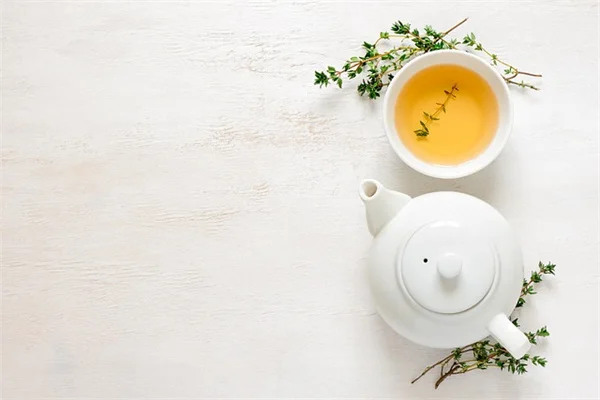Ultra-Processed Foods: The Shocking 2.7% Mortality Risk Increase Per 10% More Consumption
Are ultra-processed foods killing us? The answer is a resounding yes. A groundbreaking global study reveals that for every 10% increase in ultra-processed food (UPF) consumption, your risk of death jumps by 2.7%. That's not just some abstract number - we're talking about over 124,000 preventable deaths annually in the U.S. alone!Here's why this should matter to you: UPFs aren't just bad foods - they're chemically engineered products that our bodies simply can't process properly. We're talking about stuff like your favorite chips, frozen pizzas, and even those healthy protein bars. The scary truth? These foods make up more than 50% of the average American's diet, and they're linked to everything from obesity to cancer.I've spent years researching nutrition trends, and let me tell you - this is the most damning evidence yet against UPFs. But here's the good news: by understanding the risks and making simple swaps, you can significantly reduce your exposure. Stick with me, and I'll show you exactly how to protect yourself and your family from this hidden health crisis.
E.g. :Perimenopause Fatigue: How Heavy Periods Drain Your Energy
Advertisement
- 1、The Shocking Truth About Ultra-Processed Foods
- 2、How Different Countries Stack Up
- 3、The Health Toll of Processed Foods
- 4、What Can We Actually Do About It?
- 5、The Bottom Line
- 6、The Hidden Dangers in Your Pantry
- 7、The Real Cost of Convenience
- 8、Simple Swaps for a Healthier Life
- 9、The Power of Community Change
- 10、FAQs
The Shocking Truth About Ultra-Processed Foods
Why Your Favorite Snacks Might Be Killing You
Let me ask you something - when was the last time you checked what's actually in that bag of chips or frozen dinner you're eating? You might be shocked to learn that ultra-processed foods (UPFs) are linked to over 124,000 preventable deaths in the U.S. alone each year. That's like wiping out the entire population of Charleston, South Carolina - every single year!
A groundbreaking global study published in the American Journal of Preventive Medicine found that for every 10% increase in UPF consumption, your risk of dying from any cause jumps by 2.7%. Think about that - just swapping out one processed snack for a piece of fruit could literally save your life. The study analyzed data from eight countries, and guess what? The U.S. and U.K. topped the charts with UPFs making up over 50% of daily calories. No wonder we're seeing skyrocketing rates of obesity, diabetes, and heart disease!
The Dirty Secrets of Food Processing
Here's the scary part - UPFs aren't just "bad" because they're high in sugar or salt. The real danger comes from all the artificial ingredients, colorants, and processing aids that make these foods look and taste appealing. We're talking about stuff like:
- Emulsifiers that keep your peanut butter from separating (but might mess with your gut)
- Artificial flavors that trick your brain into craving more
- Preservatives that let food sit on shelves for years (yuck!)
Dr. Eduardo Nilson, the study's lead researcher, explains that these industrial processing methods create foods that are fundamentally different from anything our bodies evolved to handle. It's like putting diesel fuel in a gasoline engine - eventually, things are going to break down.
How Different Countries Stack Up
 Photos provided by pixabay
Photos provided by pixabay
The Good, The Bad, and The Ugly
Want to see something crazy? Check out how UPF consumption varies around the world:
| Country | Year | % of Daily Calories from UPFs |
|---|---|---|
| Colombia | 2015 | <20% |
| Australia | 2011-2012 | 37.5% |
| United States | 2017-2018 | >50% |
Notice how countries with lower UPF consumption like Colombia and Brazil have significantly fewer diet-related health problems? Meanwhile, in the U.S., we're practically bathing in processed foods - they make up a whopping 73% of our food supply! No wonder we're seeing epidemic levels of chronic diseases.
Why We Can't Stop Eating This Stuff
Here's a question that might make you uncomfortable: Why do we keep eating foods we know are bad for us? The answer is simpler than you think - it's all about convenience and clever marketing. Food companies spend billions making these products irresistible and easy to grab on the go.
Dr. Kanwar Kelley, an ENT specialist, points out that confusing food labels don't help either. That "fortified with vitamins" claim on your sugary cereal? That's just distraction from the fact it's still junk food. And let's be real - after a long day at work, who has energy to cook from scratch when you can just microwave something?
The Health Toll of Processed Foods
Your Body on UPFs: A Horror Story
That 2024 review of nearly 9.8 million people found UPFs are linked to 32 different health problems. We're not just talking about gaining a few pounds - these foods are literally making us sick. Some of the scariest connections include:
- Depression (yes, your diet affects your mood!)
- Type 2 diabetes (now affecting kids as young as 8)
- Multiple types of cancer
- Heart disease (still the #1 killer in America)
Dana Hunnes, a UCLA dietitian, explains that UPFs are like nutritional zombies - all the good stuff (fiber, vitamins, minerals) gets stripped out, leaving behind empty calories that spike your blood sugar and pack on fat. It's no wonder we're seeing record levels of obesity when our bodies aren't getting the nutrients they need to function properly.
 Photos provided by pixabay
Photos provided by pixabay
The Good, The Bad, and The Ugly
Here's something that should really worry you: while UPF consumption has stabilized in wealthy countries, it's exploding in developing nations. Dr. Nilson warns this means diet-related diseases will likely skyrocket globally in coming years. We're exporting our terrible eating habits to the whole world!
But is this really just about personal choice? Not exactly. Food deserts (areas without access to fresh food) and aggressive marketing to low-income communities make healthy eating a privilege many can't afford. That "personal responsibility" argument starts to look pretty weak when you realize the system is stacked against people making good choices.
What Can We Actually Do About It?
Small Changes That Make a Big Difference
Now, I know what you're thinking: "If this stuff is everywhere, how can I possibly avoid it?" The good news is, you don't have to go full organic farmer overnight. Start with these simple swaps:
- Choose whole fruit instead of fruit snacks
- Pick plain yogurt and add your own honey or berries
- Make popcorn at home instead of buying microwave bags
Even reducing your UPF intake by 10% could significantly lower your disease risk. And here's a pro tip: shop the perimeter of the grocery store where the fresh foods live, and avoid those tempting middle aisles full of processed junk.
Fighting Back Against Big Food
Individual changes matter, but let's be real - we need systemic change too. Countries like Chile have implemented bold policies like black warning labels on unhealthy foods and bans on junk food marketing to kids. And guess what? It's working!
We need to demand better from our policymakers and food companies. Why should schools serve processed crap to our kids? Why is healthy food more expensive than junk? These are choices our society has made, and we can make different ones if we push for change.
The Bottom Line
 Photos provided by pixabay
Photos provided by pixabay
The Good, The Bad, and The Ugly
Here's the thing - nobody's perfect. I'll admit I sometimes grab a protein bar when I'm rushing between meetings. But now that we know how dangerous UPFs really are, we can make more informed choices. Your future self will thank you when you're still healthy and active at 70 instead of dealing with diabetes and heart disease.
Remember: every bite is a chance to nourish your body or harm it. Which will you choose today?
The Hidden Dangers in Your Pantry
What Food Companies Don't Want You to Know
Ever wonder why that bag of chips tastes so good you can't stop eating? Food scientists actually engineer processed foods to hit what they call the "bliss point" - the perfect combination of sugar, salt, and fat that makes your brain go crazy. It's not an accident - companies spend millions perfecting these formulas to keep you coming back for more.
Take breakfast cereals for example. Many "healthy" options contain more sugar than a candy bar! The colorful boxes with cartoon characters? That's strategic marketing to hook kids early. And those "whole grain" claims? Often just clever wordplay to make junk food seem nutritious. The truth is, most processed foods are designed for profit, not your health.
The Sneaky Additives Lurking in Everyday Foods
Let me ask you something - can you pronounce all the ingredients in your favorite snack? Probably not! Here's a quick test: grab any packaged food and look for these common but questionable additives:
| Additive | Commonly Found In | Potential Risks |
|---|---|---|
| High fructose corn syrup | Sodas, cereals, bread | Linked to obesity, diabetes |
| Artificial food dyes | Candy, snacks, drinks | May cause hyperactivity in kids |
| Sodium nitrate | Processed meats | Possible cancer risk |
The crazy part? Many of these ingredients are banned in Europe but still allowed in the U.S. food supply. Makes you think, doesn't it?
The Real Cost of Convenience
Why Quick Meals Cost More Than Money
We all love the convenience of frozen dinners and fast food, but have you considered what you're really paying? Sure, that microwave meal saves you 20 minutes, but it might cost you years off your life. Processed foods may seem cheap at the register, but the long-term healthcare costs are staggering.
Think about this - Americans spend over $147 billion annually on obesity-related healthcare. That's enough money to buy every person in the country a brand new iPhone every year! When you factor in lost productivity and quality of life, the true cost of our processed food addiction becomes clear.
How Our Taste Buds Have Been Hijacked
Here's a mind-blowing fact: processed foods have actually changed how we experience flavor. All that artificial sweetness and saltiness has dulled our taste buds to natural flavors. That's why fresh vegetables might taste bland compared to chips - your palate has been trained to expect extreme flavors.
The good news? You can reset your taste buds in just 2-3 weeks by cutting back on processed foods. Suddenly, that apple will taste incredibly sweet, and you'll notice flavors in whole foods you never appreciated before. It's like taking earplugs out after a loud concert - everything sounds crisp and clear again!
Simple Swaps for a Healthier Life
Upgrade Your Snack Game Without Sacrificing Flavor
Who says healthy snacks have to be boring? Try these delicious alternatives that satisfy cravings without the junk:
- Instead of potato chips: Kale chips or roasted chickpeas
- Instead of candy: Dark chocolate-covered almonds
- Instead of soda: Sparkling water with fresh fruit
The key is finding substitutes that give you that satisfying crunch or sweetness without all the artificial ingredients. You might be surprised how quickly your cravings change when you make these simple switches.
Meal Prep Hacks for Busy People
"I don't have time to cook" is the most common excuse I hear, but here's the truth - with a little planning, you can eat healthy even with a packed schedule. Try these time-saving tricks:
Spend one hour on Sunday chopping vegetables and cooking grains. Store them in clear containers at eye level in your fridge so they're the first thing you see. Make big batches of soups or stews and freeze individual portions. Keep healthy grab-and-go options like hard-boiled eggs and pre-cut veggies handy for when you're rushing out the door.
Remember, every small step counts. Even replacing one processed meal a day with whole foods makes a difference. Your body will thank you!
The Power of Community Change
How Schools Are Fighting Back
Some forward-thinking school districts have completely transformed their lunch programs, proving change is possible. They've swapped processed chicken nuggets for real roasted chicken, replaced sugary flavored milks with plain options, and introduced salad bars with fresh local produce.
The results? Better test scores, fewer behavioral issues, and healthier kids. If schools feeding thousands of children daily can make this shift, imagine what you can do in your own kitchen!
Grassroots Movements Making a Difference
Across the country, communities are taking action against food deserts. Urban gardens are popping up in vacant lots, farmers markets are accepting food stamps, and local governments are offering tax incentives for grocery stores to open in underserved areas.
You don't need to wait for politicians to act - start small in your neighborhood. Organize a community potluck with healthy dishes. Share extra produce from your garden. Support local farmers through CSAs. When we work together, we can create real change in our food system.
Remember, the food industry will only change when we change our buying habits. Every dollar you spend is a vote for the kind of food system you want to see. Choose wisely!
E.g. :Ultraprocessed Foods: Are They Bad for You? > News > Yale ...
FAQs
Q: What exactly counts as an ultra-processed food?
A: Ultra-processed foods (UPFs) are industrial creations that barely resemble real food. We're talking about products like packaged snacks, sugary cereals, frozen meals, sodas, and most fast food. These items typically contain five or more ingredients you wouldn't find in a home kitchen - things like artificial flavors, emulsifiers, and preservatives. A good rule of thumb? If your great-grandmother wouldn't recognize it as food, it's probably ultra-processed. The scary part is that UPFs now make up 73% of the U.S. food supply, making them nearly impossible to avoid completely.
Q: Why are ultra-processed foods so dangerous?
A: UPFs harm your health in multiple ways. First, they're packed with sugar, salt, and unhealthy fats while being stripped of fiber and nutrients. But the real danger comes from the chemical additives and industrial processing that make these foods hyper-palatable and addictive. Studies link UPFs to 32 different health problems, including diabetes, heart disease, depression, and even some cancers. Your body simply wasn't designed to handle these artificial substances, which can disrupt your gut microbiome, spike blood sugar, and promote inflammation throughout your body.
Q: How much ultra-processed food is too much?
A: The recent global study found that any increase in UPF consumption raises mortality risk. For every 10% more UPFs in your diet, your risk of death increases by 2.7%. In practical terms, if UPFs currently make up 50% of your calories (like the average American), reducing to 40% could significantly improve your health outlook. Ideally, we should aim to keep UPFs below 20% of total calories - the level seen in healthier countries like Colombia and Brazil. Remember, it's not about perfection - even small reductions matter!
Q: Why is it so hard to stop eating ultra-processed foods?
A: Food companies spend billions designing UPFs to be irresistibly addictive. These products combine sugar, fat, and salt in ways that trigger pleasure centers in your brain. Plus, they're convenient and often cheaper than whole foods - especially in food deserts where fresh options are scarce. Marketing plays a huge role too; many UPFs are advertised as "healthy" or "fortified" when they're actually nutritional disasters. Breaking the cycle requires awareness and simple strategies like meal prepping and reading labels carefully.
Q: What are some easy ways to reduce ultra-processed foods?
A: Start with these simple swaps: choose whole fruit instead of fruit snacks, make popcorn at home instead of microwave bags, and opt for plain yogurt with fresh berries instead of flavored varieties. Shop the perimeter of the grocery store where the fresh foods live, and always check ingredient lists - fewer ingredients usually means less processing. When cooking seems overwhelming, remember that simple meals like scrambled eggs with veggies or a baked potato with toppings can be both easy and UPF-free. Every small change adds up to better health!







